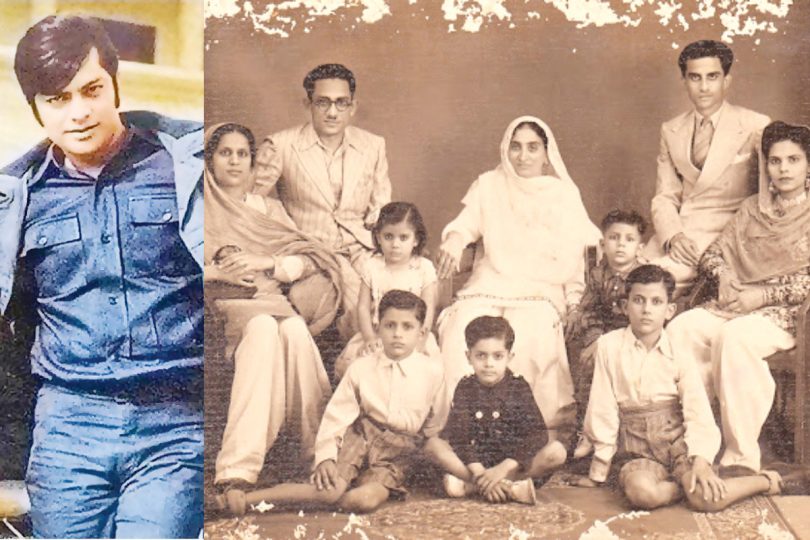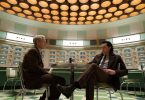He came, he saw and he conquered, that’s the only way to define the charismatic chocolate hero of Pakistani cinema, Waheed Murad. Not only did he change the way romance was filmed on screen but also breathed a new life into the filming of songs. Before his entry, it was usually the leading lady who did all the hard work, including chasing the good-looking leading man, however, it all changed when Waheed Murad danced into the hearts of many with his ‘twist dance’ with actress Neelo in Daaman. Although he wasn’t the lead in the film, he produced his own debut as a leading man one year later in 1964, and the rest is history.
With the help of Ahmed Rushdi’s vocals, he went on to become a heartthrob in no time, helping the pair establish themselves as successful playback singer and actor duo respectively. On what would have been his 84th birthday, let’s take a look at some of the Waheed Murad songs that helped shape up the film industry in the 60s and the 70s, and still continue to fascinate those who have the eyes and the ears for good quality songs.

Ko Ko Ko Rina – Armaan
It all changed in the year 1966 when Waheed Murad’s home production Armaan was released. Featuring a soundtrack that still sounds fresh, a cast that still looks perfect, and a story that has aged gracefully, it went on to do more business at that time than any other film in Pakistan’s short history. When Waheed Murad made his entry in the film through a fast-paced Ko Ko Ko Rina, it added a youthful touch to film songs that was missing till that time. With his ability to shake his feet, in tune with Sohail Rana’s composition, Waheed Murad captured the nation’s heart, soul, and mind.
Ahmed Rushdi’s vocals added that ‘pop’ touch to the rock and roll number, which is still popular after 55 years, and is known as one of the most popular film songs of all times in Pakistan. Penned by Masroor Anwar, the song recently featured twice in the Ms. Marvel series and if that isn’t proof enough of its longevity, I don’t know what is!

Akele Na Jana – Armaan
For every fast-pace Ko Ko Ko Rina, there is a slow (romantic ballad) Akele Na Jana, and Waheed Murad must be commended for that. When he was producing Armaan, he asked music composer Sohail Rana for a song that he had already composed for a film named Akele Na Jana, and although that film didn’t materialize, Armaan did, making the song among the very best work of the music composer. It was filmed on Waheed Murad and Zeba in the picturesque locations of Murree where their characters flirted with each other without even getting intimate onscreen. The song then returned at the climax of the film in Mala’s voice where Zeba tried to stop Waheed Murad’s character from committing suicide, and needless to say, Masroor Anwar’s lyrics were convincing enough to save the day.
Tumhein Kaisi Bata Doon – Doraha
In the 1960s when the world was changing for the better, Pakistan was in search of a good-looking leading man who was relatable to the boys, and desirable to girls. The search ended with Doraha in 1967 when Waheed Murad’s character hitched a ride in the Northern Areas of the country, and then from the back of the van in which he was commuting, flirted with Shamim Ara’s character who was trailing the vehicle in her own car. The expressions, the emotions and the happy-go-lucky manner in which Waheed Murad delivered the song were enough to win the girl on screen as well as the girls of the entire nation who wanted nothing less than a Waheed Murad in real-life. His hairstyle was the other thing that the boys adopted, for it was the most original thing till that time to happen on the fashion front in the country.

Haan Isi Mor Par – Doraha
And when that successfully-wooed damsel left the leading man, he ended up wandering in the same valley with nothing else on his mind but memories. Waheed Murad played that heartbroken lover in this song perfectly and gave life to Masroor Anwar’s lyrics, Sohail Rana’s composition, and Ahmed Rushdi’s vocals. Director Pervez Malik, the fifth member of the uber-successful gang, went back to the same location where another song from the film Aye Ajnabi Zara Soch Lo was also filmed to give it the melancholic touch and succeeded big time. The song is remembered as one of the most memorable of Waheed Murad’s career because only he could look dashing, even in the white kurta pajama.
Hip Hip Hurray – Devar Bhabi
Although many actors have tried to impress their elders with a song onscreen, such as their mothers, their sisters, or sister-in-law, no one has been able to match the charisma and elegance with which Waheed Murad did it in Devar Bhabi. This Master Inayat Hussain composition features the young hero and his niece who are trying to stop her mother from leaving them alone at home and succeeded in doing it thanks to Ahmed Rushdi’s vocals. Don’t be surprised if you see Waheed Murad playing an invisible drum, make an expression on a horse’s neigh and even get smacked for his antics. Despite being 55 years old, this song is still gold for the eyes and the ears!

Kia Hai Jo Pyaar – Dil Mera Dharkan Teri
Ever wondered who kick-started the trend of a leading man dancing amongst trees and trying to woo his lady love in such a manner that she falls for it by the time the song ends? It was Waheed Murad who used the Akele Na Jana template successfully opposite Shamim Ara, with little help from Ahmed Rushdi. The song composed by Master Inayat Hussain in 1968 is still remembered after fifty-odd years because Waheed Murad used everything between the earth and the sky to make the heroine realize that he loves her more than anything else in the world. Needless to say, when it was the heroine’s turn to woo back her man, she used the exact song to have a happy ending for the characters, and a memorable number for the listeners.
Koch Log Rooth Kar Bhi – Andaleeb
When colour films became a norm in Pakistan, Waheed Murad was one of the first to use the colours to his advantage. In 1969, when he appeared opposite Shabnam in their first colour film, he looked dashing despite spending most of this song in an open car without any roof. Composed by Nisar Bazmi, this song was an instant success and appeared again in the film, but in Madam Noor Jehan’s voice who sang it for the very lady he had earlier tried to flirt with. Both the versions were a success but the youth remember Waheed Murad ones more for its happy tone, and because it made them realize that they had an icon amongst them who could be emulated, especially when he seemed to do nothing wrong on screen.
Dil Tumko De Dia Hai – Naseeb Apna Apna
Waheed Murad welcomed the 1970s with his home production where he played the lover boy to perfection. In this song composed by the duo Lal Mohammad Iqbal, Waheed was seen dancing in the park with Shabnam, who had by then emerged as one of the best dancers in films. Before this song, synchronized dancing was mostly seen in either Hollywood films or across the border but the way Waheed Murad and Shabnam owned it, it looked graceful as well as youthful. Add to that Waheed Murad’s expressions especially when he delivers the words ‘sambhal rakhna’ and it wasn’t a surprise when synchronized dancing became a part of Pakistani films, and to date, actors try to emulate Waheed Murad, who started the trend.
Bhabi Meri Bhabi – Anjuman
If there ever was a song that described the two sides of Waheed Murad, then it was this Nisar Bazmi composition from Hassan Tariq’s magnum opus. The 1970 film featured Waheed Murad as Santosh Kumar’s younger brother who first danced to this song on the wedding anniversary of his brother and sister-in-law, making sure that it was remembered for a long time. However, when the patriarch falls for the charms of a prostitute, the kid brother sacrifices his own life to save the brother’s marriage by replacing him at the prostitute’s request. The sad version of the song returned in the final act of the film where Waheed Murad played it on the piano, but looked remorseful for deceiving his own fiancée (Deeba), whose actions made the Bhabi realize that there was more to the matter than meets the eye. Of course, it was Ahmed Rushdi who sang both versions.
Dil Ko Jalana – Mohabbat Zindagi Hai
Despite the arrival of younger heroes on the stage such as Nadeem, Shahid, and Ghulam Mohiuddin, Waheed Murad didn’t lose his touch until the late 1970s. He not only successfully played the kid brother to Mohammad Ali’s character in Mohabbat Zindagi Hai in 1975 but combined with Ahmed Rushdi to give one of the most popular melancholic numbers in Pakistan’s film industry. Waheed Murad was at his animated best in the song where he refused to leave alcohol for his reformed fiancée played by Mumtaz, and kept dancing around the set to show that not even her remorseful persona matters to him. –Ends







